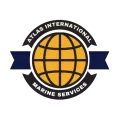
The world’s oceans are vast and magnificent, providing a home to diverse marine life and supporting countless livelihoods.
However, beneath their azure beauty lies a growing threat – maritime waste.
From plastic debris to hazardous materials, the improper disposal of waste poses significant challenges to our oceans.
In this blog, we will explore the challenges and opportunities in maritime waste management and recycling, shedding light on the crucial steps needed to protect our seas.
The Challenges
Pollution Prevention
Maritime waste poses a significant challenge, with vessels generating various forms of waste, including plastics, oil, chemicals, and sewage.
The prevention of pollution at its source through the adoption of stricter regulations and improved waste management practices is crucial.
Lack of Infrastructure
One of the major hurdles in maritime waste management is the lack of adequate infrastructure for waste collection, segregation, and treatment.
Developing efficient waste management facilities and fostering international cooperation can help bridge this gap and ensure proper disposal.
International Regulations
Navigating the complexities of international regulations presents a challenge in effectively managing maritime waste.
Harmonizing regulations and fostering collaboration among nations can streamline waste management efforts and drive positive change.
Opportunities for Innovation
Recycling and Repurposing
Embracing innovative recycling technologies can transform maritime waste into valuable resources.
Initiatives such as turning plastic waste into fuel or utilizing recycled materials for shipbuilding present opportunities to reduce waste and create a circular economy.
Public Awareness and Education
Raising public awareness about the impact of maritime waste is crucial in driving behavioral change.
Educational campaigns, workshops, and collaborations with local communities can empower individuals to make sustainable choices and contribute to waste reduction efforts.
Collaboration and Partnerships
Building partnerships among governments, shipping industries, research institutions, and environmental organizations can foster knowledge-sharing, research, and the development of sustainable waste management solutions.
Collaborative efforts can unlock new possibilities and accelerate progress in this field.
Case Studies
Norway’s Green Shipping Program
Norway has pioneered sustainable shipping practices through its Green Shipping Program.
This initiative promotes the use of eco-friendly technologies, waste reduction strategies, and the adoption of clean energy sources, setting an inspiring example for other nations.
The WasteShark
The WasteShark is an autonomous marine drone that collects surface waste and pollutants from harbors and marinas.
This innovative technology not only helps clean the waters but also facilitates data collection and analysis for effective waste management strategies.
Final Thoughts
Maritime waste management and recycling present significant challenges, but they also offer a world of opportunities.
By implementing stricter regulations, investing in infrastructure, fostering innovation, and promoting public awareness, we can embark on a journey towards cleaner oceans and a more sustainable future.
Let us join hands and navigate the seas of waste together, striving to protect our precious marine ecosystems for generations to come.
Found this article interesting, and useful? Please feel free to interact, recommend and share.
If you have any questions about this topic or would like to discuss your own business needs, please contact us today!
